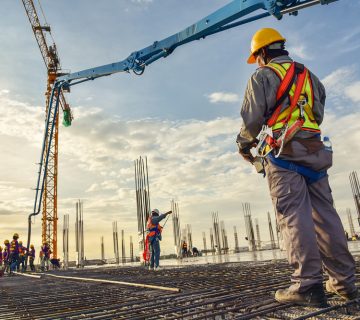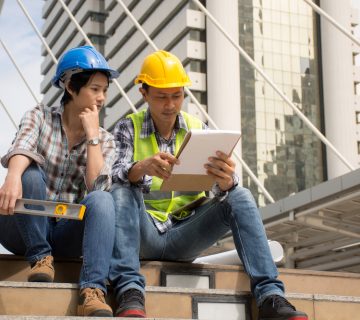Construction projects are complex and often involve numerous stakeholders, including contractors, developers, property owners, and subcontractors. Given the intricacies of these projects, disputes are not uncommon. These disputes may arise due to delays, defects, payment issues, or scope changes, leading to costly litigation if not addressed promptly. However, mediation offers a more efficient and less adversarial way to resolve construction disputes.
Mediation is an alternative dispute resolution (ADR) process where a neutral third party, the mediator, helps the parties involved reach a mutually acceptable solution. In construction disputes, mediation can be especially beneficial, helping to maintain relationships and avoid lengthy litigation.
The Benefits of Mediation in Construction Disputes
Mediation has several advantages over traditional litigation in resolving construction disputes:
1. Cost-Effective
Litigation is often expensive, with attorney fees, court costs, and expert witness expenses adding up over time. Mediation, on the other hand, is generally far more affordable. Since mediation sessions are designed to be quicker than a court trial, the overall costs are significantly lower for all parties involved.
2. Faster Resolution
Construction disputes can drag on for months or even years in court, delaying the project and costing everyone involved time and money. Mediation offers a quicker resolution, as sessions are typically scheduled and resolved within a much shorter timeframe than traditional litigation.
3. Confidentiality
Unlike courtroom trials, which are part of the public record, mediation is a confidential process. This allows the parties to freely discuss sensitive issues without the risk of damaging their reputation or business relationships. Confidentiality is especially important in high-profile construction cases or disputes involving multiple parties.
4. Preservation of Relationships
Construction disputes can strain business relationships, making it difficult for the parties involved to continue working together. Mediation promotes a cooperative atmosphere, helping to preserve relationships between contractors, developers, and property owners. By resolving disputes in a less adversarial manner, mediation reduces the risk of animosity and allows parties to move forward with the project once the dispute is settled.
5. Flexibility and Control
In litigation, the final decision is in the hands of a judge or jury, often resulting in a win-lose outcome. Mediation, on the other hand, allows the parties to retain control over the resolution. They can negotiate the terms of the settlement, making it more likely to result in a win-win solution. This flexibility often leads to creative solutions that may not be available through the court system.
6. Non-Binding Process
Mediation is a non-binding process, meaning the parties are not required to accept the mediator’s recommendations. If an agreement is not reached, they can still pursue litigation or other forms of dispute resolution. However, the fact that mediation is non-binding also encourages parties to participate in good faith, knowing they can leave the process if a satisfactory resolution isn’t achieved.
How Mediation Works in Construction Disputes
The mediation process in construction disputes follows a structured approach:
1. Selection of a Mediator
The first step is selecting a neutral mediator with experience in construction law. The mediator should be familiar with the technical and legal aspects of construction projects to effectively facilitate discussions between the parties.
2. Pre-Mediation Preparation
Before the mediation begins, each party typically prepares by gathering relevant documents, such as contracts, change orders, and any correspondence related to the dispute. The parties may also submit written statements to the mediator summarizing their positions and desired outcomes.
3. Joint and Private Sessions
Mediation usually begins with a joint session where all parties present their case and express their concerns. After this, the mediator may hold private sessions (known as caucuses) with each party to explore potential solutions and areas of compromise. These private sessions allow the mediator to understand the underlying interests of each party and help guide them toward a resolution.
4. Negotiation and Settlement
The mediator facilitates negotiations between the parties, encouraging them to explore various settlement options. The mediator does not impose a solution but helps the parties find common ground. If a settlement is reached, it is documented in a written agreement, which can then be enforced as a binding contract.
5. Post-Mediation
If the parties reach an agreement, they can move forward with the project or resolve the dispute. If mediation fails to produce a resolution, the parties can still pursue litigation or arbitration.
When Is Mediation Appropriate for Construction Disputes?
Mediation can be used to resolve a wide range of construction disputes, including:
- Construction defects: Disputes over the quality of work or materials used.
- Payment disputes: Disagreements over payment schedules, unpaid invoices, or additional costs.
- Project delays: Disputes arising from delays in project completion.
- Scope changes: Disagreements over changes in project scope or unexpected work.
- Contract disputes: Breaches of contract, interpretation issues, or unclear contract terms.
Mediation is particularly effective when both parties are motivated to resolve the dispute quickly and want to avoid the high costs and adversarial nature of litigation.
How We Can Help
At Stryker Slev Law Group, we understand that construction disputes can be disruptive and costly for all involved parties. As one of San Diego’s leading law firms in construction law, we have extensive experience handling high-profile cases involving construction defects, commercial real estate, and other related disputes. Our team believes in the power of mediation to resolve issues efficiently and amicably while protecting your business interests.
We can assist you in navigating the mediation process, ensuring that your rights are protected and that you reach a fair and reasonable settlement. If mediation doesn’t provide the resolution you need, we are prepared to advocate for you in court. Contact us today to learn more about how we can help you resolve your construction disputes and move forward with your project.



